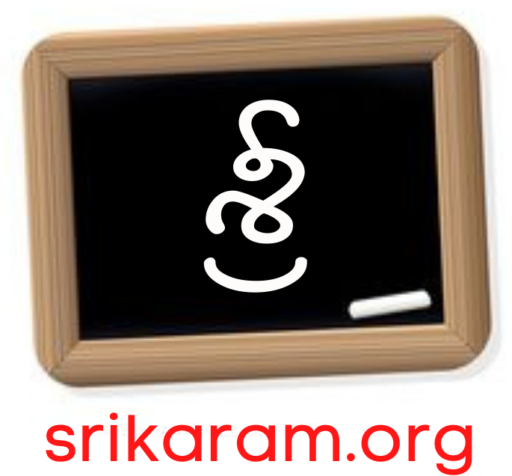Andhra Pradesh is renowned for its vibrant and diverse cultural festivals, reflecting the state’s rich traditions and heritage. Here are some of the most famous Telugu festivals celebrated in Andhra Pradesh:
**1. ** Sankranti (Pongal)
- Time of Celebration: January 14th (sometimes 13th or 15th depending on the year).
- Significance: Sankranti is a major harvest festival that marks the end of the winter solstice and the beginning of the harvest season. It is celebrated with great enthusiasm across Andhra Pradesh.
- Celebrations: The festival involves preparing special dishes like Pulihora (tamarind rice), Pongal (a sweet dish made from rice, jaggery, and milk), and Chakkara Pongal. People also fly kites, conduct bonfires, and engage in traditional games and dance.
**2. ** Ugadi
- Time of Celebration: Usually in March or April, depending on the lunar calendar.
- Significance: Ugadi is the Telugu New Year and marks the beginning of the new year in the Hindu calendar. It is a time for new beginnings and the renewal of life.
- Celebrations: Ugadi is celebrated with the preparation of a special dish called Ugadi Pachadi, which combines sweet, sour, bitter, and spicy flavors symbolizing different experiences of life. Homes are decorated with mango leaves and rangolis, and people visit temples and exchange greetings.
**3. ** Bonalu
- Time of Celebration: Usually in July or August.
- Significance: Bonalu is a folk festival dedicated to the goddess Mahakali. It is celebrated primarily in Hyderabad and surrounding areas, including parts of Andhra Pradesh.
- Celebrations: Devotees offer cooked rice, curd, and jaggery (known as Bonam) in decorated pots to the goddess. The festival includes traditional processions, music, dance, and rituals at temples dedicated to Mahakali.
**4. ** Dasara (Vijayadashami)
- Time of Celebration: September or October, depending on the lunar calendar.
- Significance: Dasara, also known as Vijayadashami, celebrates the victory of good over evil. It is a major Hindu festival observed across India.
- Celebrations: In Andhra Pradesh, Dasara is marked by elaborate decorations, special pujas, and cultural events. The festival includes the performance of traditional dance forms, and various fairs and exhibitions are held.
**5. ** Deepavali (Diwali)
- Time of Celebration: October or November, depending on the lunar calendar.
- Significance: Deepavali, or Diwali, is the Festival of Lights and symbolizes the triumph of light over darkness and good over evil.
- Celebrations: The festival is celebrated by lighting oil lamps (diyas), bursting fireworks, exchanging sweets, and preparing special dishes. Homes and public spaces are decorated with lights and rangolis.
**6. ** Makar Sankranti
- Time of Celebration: January 14th.
- Significance: Similar to Sankranti, Makar Sankranti marks the end of the winter solstice and the beginning of longer days. It is celebrated to honor the sun god, Surya.
- Celebrations: The festival includes flying kites, preparing traditional sweets like Tilgul (made from sesame seeds and jaggery), and enjoying festive meals.
**7. ** Sri Rama Navami
- Time of Celebration: March or April, depending on the lunar calendar.
- Significance: Sri Rama Navami celebrates the birth of Lord Rama, a major deity in Hinduism.
- Celebrations: Temples are decorated, and special prayers and hymns are performed. Devotees often read or listen to the Ramayana and participate in processions.
**8. ** Ganesh Chaturthi
- Time of Celebration: August or September, depending on the lunar calendar.
- Significance: Ganesh Chaturthi celebrates the birth of Lord Ganesha, the elephant-headed deity of wisdom and prosperity.
- Celebrations: The festival involves the installation of Ganesh idols in homes and public places, elaborate decorations, and processions. After the festival, the idols are immersed in water in a ritual known as Visarjan.
**9. ** Krishna Janmashtami
- Time of Celebration: August or September, depending on the lunar calendar.
- Significance: Krishna Janmashtami marks the birth of Lord Krishna, an avatar of Vishnu.
- Celebrations: Devotees fast, sing devotional songs, perform dances, and reenact episodes from Krishna’s life. Temples and homes are decorated, and special prayers are offered.
**10. ** Rajyotsava (Andhra Pradesh Formation Day)
- Time of Celebration: November 1st.
- Significance: Rajyotsava commemorates the formation of Andhra Pradesh as a separate state in 1953.
- Celebrations: The day is marked with cultural events, parades, and various celebrations highlighting the state’s history, culture, and achievements.
These festivals showcase the rich cultural heritage and vibrant traditions of Andhra Pradesh, reflecting the diverse and festive spirit of the region.
